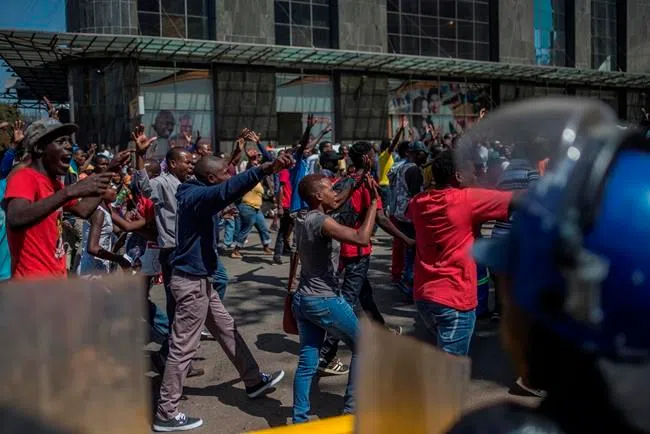
Deadly riots rock Zimbabwe’s capital as vote results delayed
HARARE, Zimbabwe — Soldiers and police fired live rounds, water cannons and tear gas at furious protesters who threw rocks and burned vehicles Wednesday in Zimbabwe’s capital, dashing the optimism of an election that the country hoped would set it on a new course after decades of Robert Mugabe’s rule. At least three people were reported killed.
Violence swept through central Harare after an official announcement that the ruling ZANU-PF party had won most of the seats in Parliament, an outcome that enraged opposition supporters who believe they have been cheated of victory.
The Zimbabwe Electoral Commission’s decision to delay announcing the results of the presidential race at least until Thursday — three days after the vote — seemed certain to bring more opposition anger if President Emmerson Mnangagwa is declared the winner. Alternatively, many Zimbabweans wonder whether the ruling establishment, including the military, would accept a win for the main opposition leader, Nelson Chamisa.
Monday’s upbeat spectacle of millions of Zimbabweans voting peacefully was eclipsed 48 hours later by scenes of tanks and other military vehicles speeding through debris-strewn streets and soldiers beating protesters who had blocked main roads and set bonfires. Some journalists also were attacked.
